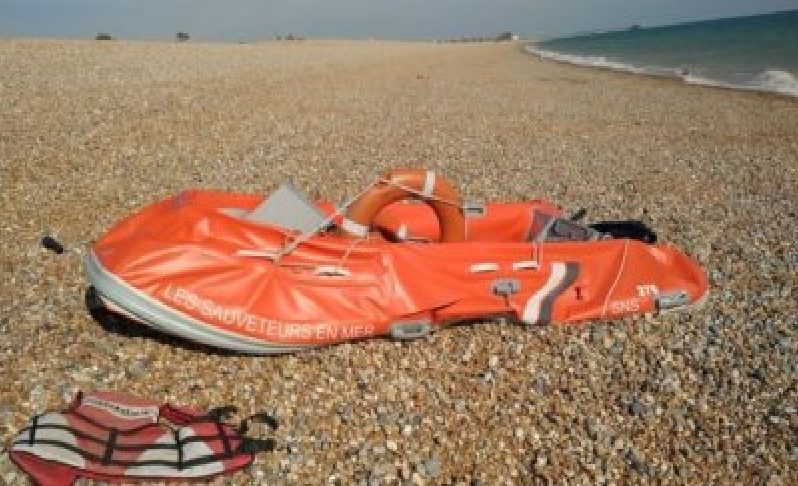A few weeks ago, in an interview with Rye MP and Home Secretary, Amber Rudd, we were told that our sea border was secure and that sophisticated detection equipment was in place to ensure that people traffickers would not be able to send migrants to reach our shores unnoticed. There is little doubt that extensive measures have been, and continue to be, taken to ensure that only those legally entitled to do so, can enter the country.
However, even the best systems are not foolproof. In his article from September 16 on guarding the English Channel, Charles Harkness pointed out that, in contrast to the 14 ships employed for this task in previous times, today there is only a total of five Border Force cutters, of which just one is available for duties along the southern shores of Kent and Sussex and although five more smaller vessels are currently being built, none are yet in service.
The result is that despite the technical wizardry available to the Border Force, some craft will get through.
Last Saturday, September 24, a very small inflatable dinghy was found on the beach near Walmer and, alerted to the situation, the police later detained three men in Deal, suspected of entering the country illegally.
Although equipped with an outboard motor, the dinghy was tiny – barely six feet long – and only just capable of holding three adults. Not only was the journey extremely hazardous (it would be unlikely to show up on a normal radar and they wouldn’t need to have been hit by a passing ship, the wake alone would have been sufficient to swamp them) but, despite the outboard, they would have been very largely at the mercy of wind and currents. As it happened, they ended up on the extreme east of the Southern coastline, but they could equally well have been washed ashore further west – Dungeness, Lydd, Camber or Winchelsea Beach (where others have previously landed).
They were, perhaps, fortunate to land where they did. Had they been driven into Rye Bay, and depending on wind direction, they might well have met the short, very steep and confused seas that are so prevalent there. And while these conditions, though occasionally exciting, are of no danger to the average well-found yacht or fishing boat, a dinghy as small as this one would have been lucky to survive. Camber Sands or Winchelsea Beach could so easily have been the scene of yet another tragedy.
For the sake of simple humanity, quite apart from other considerations, it is to be hoped that it will not be too long before the first of the promised additional patrol boats arrive.
Photo: BBC




I’d love to hear their account of the crossing
You can use all the sophisticated techniques and ships to intercept illegal immigrants, but it’s what happens afterwards that matters. Illegal immigrants know this and often phone the police as soon as they arrive. Seven (I think) illegal immigrants were detained near Pett Level this year, but were released into the community free to travel anywhere in the UK and simply asked to report in (by phone??) as their “case” progressed. I wonder if they ever did?